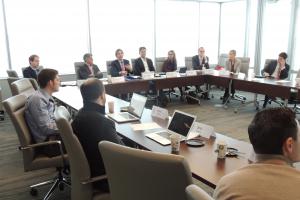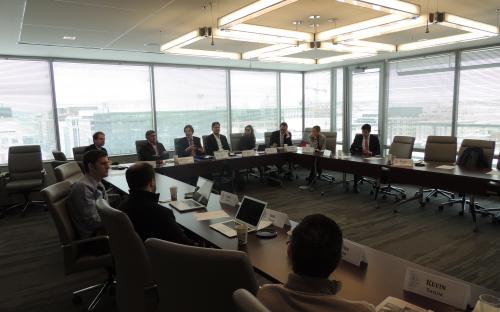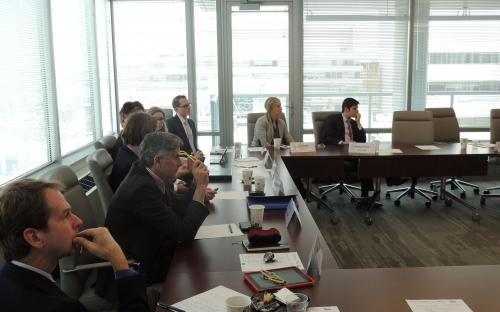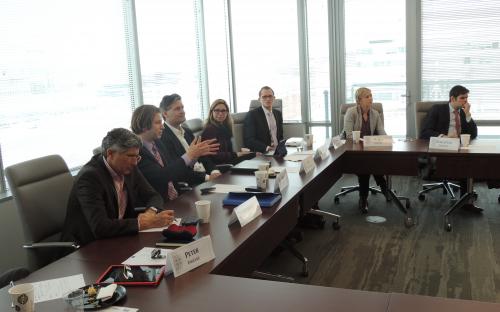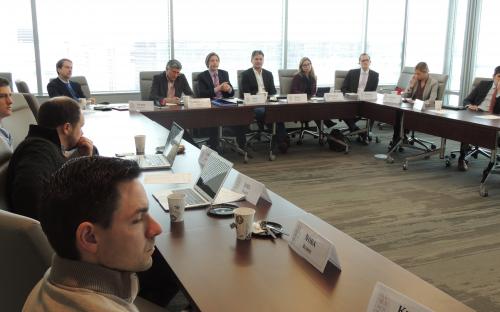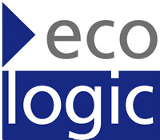Cities are dynamic and never “finished”. They reflect cultures and the needs and intentions of those living there. It takes time, but they can be re-imagined and redesigned. Cities can be built to provide a high quality of life and a smaller environmental impact.
Under the auspices of the POCACITO project (http://www.ecologic.eu/10334) and ELEEP, Ecologic Institute and the Atlantic Council convened a workshop on post-carbon cities and the reimagining of urban spaces in Washington, DC. A small group of experts working on different aspects of urban design and sustainability were gathered to discuss current urban trends in the US and the EU (as well as globally) and to consider examples of cities in the US and the EU that are making efforts to re-imagine what a city can be and to provide their citizens options for a high quality of life with lower environmental impacts.
Peter Engelke, Senior Fellow at the Atlantic Council, welcomed the group and provided introductory, guiding remarks for the workshop. He spoke of the ever-changing nature of cities, and how motivated citizens, business leaders, and politicians have the capacity to reshape cities. In many parts of the world, these efforts are translating into improved livability (through better access to walking, biking, and public transportation) and increased wealth generation, while not increasing impacts on the natural environment. Prof. Anthony Bigio, of The George Washington University, delivered a keynote presentation on his previous work at the World Bank on fostering resilient cities and the ways in which city leaders can improve welfare and environmental performance. Peter then moderated a question and answer session with Prof. Bigio.
Following the first session, Dominic Marcellino, Program Director at Ecologic Institute US, moderated a panel discussion on the identification and exchange of best practices in urban development. The panelists were Max Gruenig, Senior Fellow at Ecologic Institute Berlin, Dale Medearis, Senior Environmental Planner at the Northern Virginia Regional Commission (NVRC), and Danielle Fidler, Attorney and Adviser at the US Environmental Protection Agency. Max gave a presentation and overview of the POCACITO project and its intention to assess how a variety of European cities are pursuing policies and measures to improve livability and decrease environmental impacts. Dale discussed work at NVRC to foster goal-focused, outcome-oriented interactions between local and regional policymakers from the US and the EU. Danielle, a Member of the ELEEP Network, gave a presentation synthesizing what has been learned at two ELEEP study tours on transportation and urban development and the ways in which the ELEEP Network has identified and disseminated best practices.

